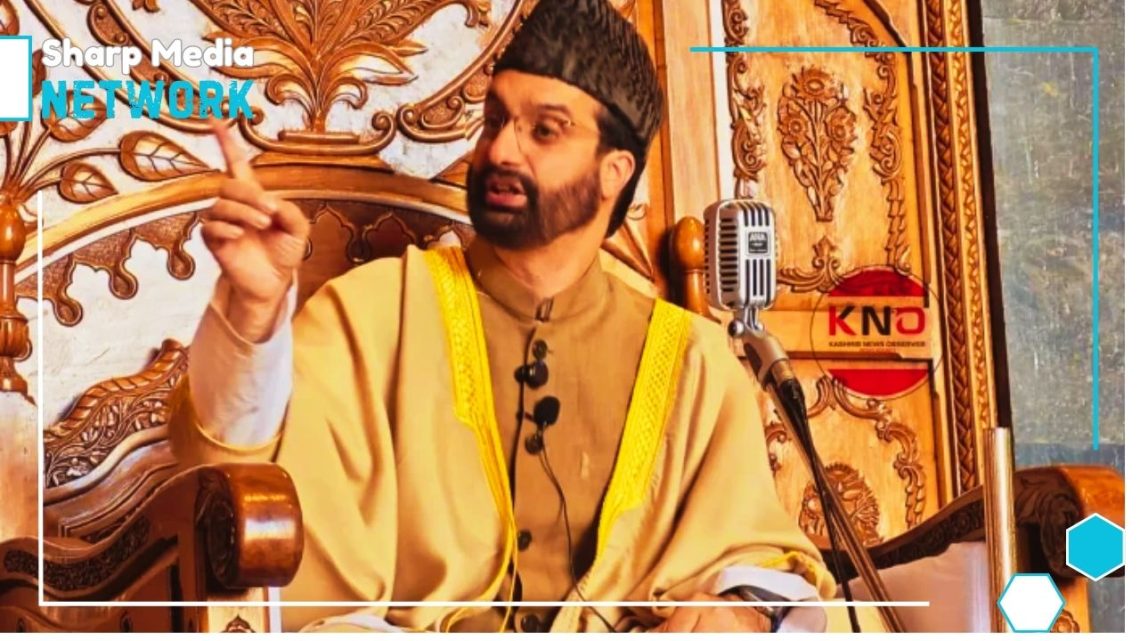
BJP’s Unjustified House Arrest of Mirwaiz Umar Farooq: A Clear Attack on Religious Freedom
December 7, 2024By placing Mirwaiz Umar Farooq under house arrest, the Indian government not only silences a political voice but also desecrates IIOJK’s right to religious freedom and spiritual expression.
In yet another evident example of the Indian government’s repression in Indian Illegally Occupied Jammu and Kashmir (IIOJK), Mirwaiz Umar Farooq, a senior leader of the All Parties Hurriyat Conference, was placed under house arrest in Srinagar yesterday. The authorities imposed the detention to prevent him from performing his religious duties, specifically stopping him from attending the Juma prayers at the historic Jamia Masjid, a central place of worship and social activity for Kashmiris.
This move, carried out by the Indian authorities, reflects the continuing pattern of curbing religious and political freedoms in the region. Mirwaiz Farooq, a key spiritual and political leader, had planned his usual Friday visit to Jamia Masjid when the authorities informed him that he was under house arrest. The sudden restriction on his movement was clearly intended to stifle his influence over the public, particularly at a time when thousands of Kashmiris gather at the mosque for prayers and his sermon.
The Anjuman Auqaf of Jamia Masjid condemned this unlawful action in a statement issued in Srinagar, calling the house arrest “unjustified” and an “infringement on religious freedom.” The statement highlighted that the move represented unwarranted interference in religious matters and went against the Mirwaiz’s role as a religious leader for the IIOJK. By preventing him from fulfilling his religious duties, the authorities are not only denying him his rights but also hindering the spiritual and social needs of the people who rely on his guidance.
The Anjuman Auqaf further pointed out that the house arrest caused disappointment among the local worshippers who had come from different parts of the region, hoping to attend the Friday prayers and benefit from the Mirwaiz’s sermon. The Mirwaiz’s sermons, which often touch on both religious and political issues, have historically been a source of solace and resistance for Kashmiris facing oppression. Such actions by the Indian administration, critics argue, aim to stifle any form of dissent and maintain control over the religious and political landscape of the region.
The imposition of house arrest on religious leaders like Mirwaiz Umar Farooq is part of a broader strategy by the Indian government to suppress Kashmiri voices, particularly those advocating for political autonomy and religious freedom. The move follows a disturbing pattern of using arbitrary detentions and restrictions on religious practices to subdue public sentiment and silence dissent. This action serves as a clear reminder of how the Indian state continues to employ heavy-handed tactics to assert its control over Kashmir, not just through military force but also by targeting the spiritual and political leadership of the region.
This kind of repression is not only an attack on the personal freedoms of individuals like Mirwaiz Farooq but also an assault on the collective identity of the Kashmiri people. The ongoing crackdown on religious and political expression in IIOJK continues to erode the region’s autonomy, leaving its people marginalized and voiceless in the face of an oppressive regime.

